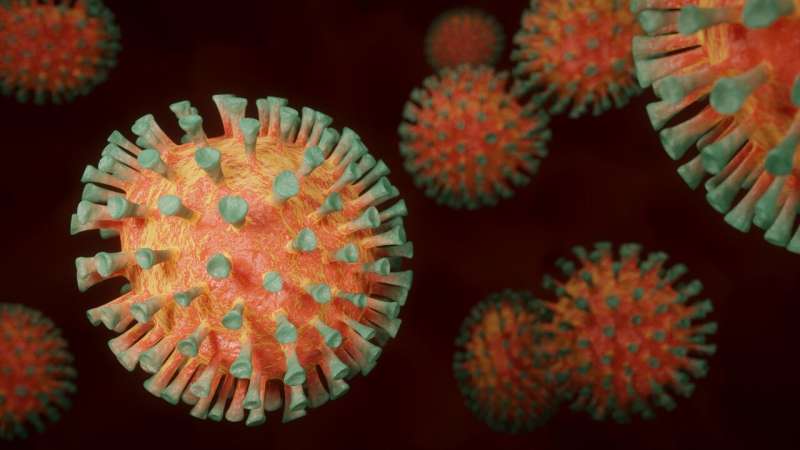
A new UK study of more than 2,000 patients after hospitalization with COVID-19 presented at this year’s European Congress of Clinical Microbiology & Infectious Diseases (ECCMID 2022, Lisbon 23-26), and published in The Lancet Respiratory Medicine shows that, one year after having COVID-19, only around one in four patients feel fully well again. The study is led by Professor Christopher Brightling, Dr. Rachael Evans, and Professor Louise Wain, National Institute for Health Research Leicester Biomedical Research Center, University of Leicester, UK and colleagues.
The authors found that being female versus being male (32% less likely), having obesity (half as likely) and having had mechanical ventilation in hospital (58% less likely) were all associated with a lower probability of feeling fully recovered at one year. The most common ongoing long-COVID symptoms were fatigue, muscle pain, physically slowing down, poor sleep, and breathlessness.
This research used data from the post-hospitalization COVID-19 (PHOSP-COVID) study which assessed adults (aged 18 years and over) who had been hospitalized with COVID-19 across the UK and subsequently discharged. Patients from 39 UK National Health Service (NHS) hospitals were included, who agreed to five-month and 1-year follow-up assessments in addition to their clinical care. Recovery was assessed using patient-reported outcome measures, physical performance, and organ function at 5 months and 1 year after hospital discharge. The researchers also took samples of participants’ blood at the five month visit to analyze it for the presence of various inflammatory proteins.
A total of 2320 participants discharged from hospital between March 7, 2020, and April 18, 2021, were assessed at 5 months after discharge and 807 (33%) participants completed both the 5-month and 1-year visits at the time of analysis (and the study is ongoing). These 807 patients had a mean age of 59 years, 279 (36%) were women and 28% received invasive mechanical ventilation. The proportion of patients reporting full recovery was similar between 5 months (501 [26%] of 1965) and 1 year (232 [29%] of 804).
In an earlier publication from this study* the authors had identified four groups or ‘clusters’ of symptom severity at five months, which were confirmed by this new study at one year. Of the 2320 participants, 1636 had sufficient data to allocate them to a cluster: 319 (20%) had very severe physical and mental health impairment, 493 (30%) had severe physical and mental health impairment, 179 (11%) moderate physical health impairment with cognitive impairment, and 645 (39%) mild mental and physical health impairment. Having obesity, reduced exercise capacity, a greater number of symptoms, and increased levels of the inflammatory biomarker C-reactive protein were associated with the more severe clusters. In both the very severe and the moderate with cognitive impairment clusters, levels of the inflammatory biomarker interleukin-6 (IL-6) were higher when compared with the mild cluster.
Dr. Evans says: “The limited recovery from 5 months to 1 year after hospitalization in our study across symptoms, mental health, exercise capacity, organ impairment, and quality-of-life is striking.”
She adds: “We found female sex and obesity were major risk factors for not recovering at 1 year… In our clusters, female sex and obesity were also associated with more severe ongoing health impairments including reduced exercise performance and health-related quality of life at 1 year, potentially highlighting a group that might need higher intensity interventions such as supervised rehabilitation.”
On lack of existing treatments for long COVID, Professor Wain says: “No specific therapeutics exist for long COVID and our data highlight that effective interventions are urgently required. Our findings of persistent systemic inflammation, particularly in those in the very severe and moderate with cognitive impairment clusters, suggest that these groups might respond to anti-inflammatory strategies. The concordance of the severity of physical and mental health impairment in long COVID highlights the need not only for close integration between physical and mental health care for patients with long COVID, including assessment and interventions, but also for knowledge transfer between health-care professionals to improve patient care. The finding also suggests the need for complex interventions that target both physical and mental health impairments to alleviate symptoms. However, specific therapeutic approaches to manage post-traumatic stress disorder might also be needed.”
Source: Read Full Article